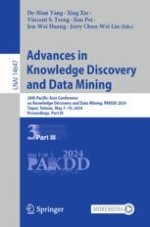2024 | OriginalPaper | Buchkapitel
Interpreting Pretrained Language Models via Concept Bottlenecks
verfasst von : Zhen Tan, Lu Cheng, Song Wang, Bo Yuan, Jundong Li, Huan Liu
Erschienen in: Advances in Knowledge Discovery and Data Mining
Verlag: Springer Nature Singapore
Aktivieren Sie unsere intelligente Suche, um passende Fachinhalte oder Patente zu finden.
Wählen Sie Textabschnitte aus um mit Künstlicher Intelligenz passenden Patente zu finden. powered by
Markieren Sie Textabschnitte, um KI-gestützt weitere passende Inhalte zu finden. powered by
